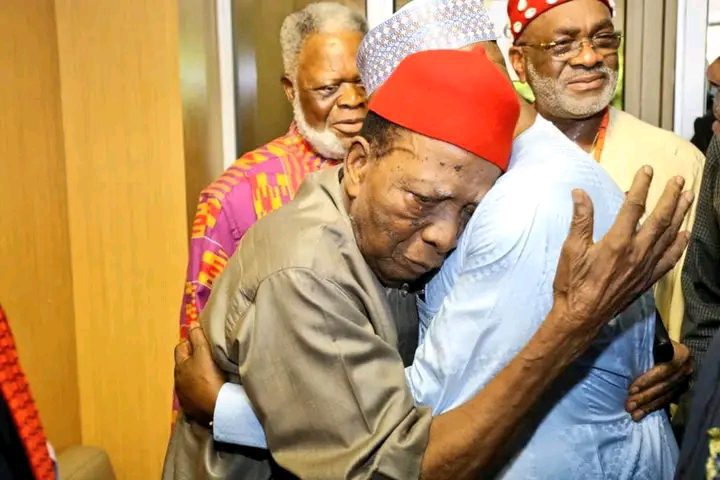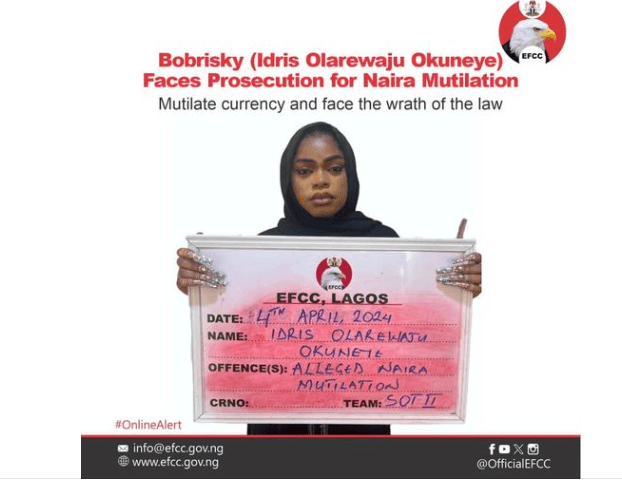The Federal Government of Nigeria, in a move aimed at fostering unity and religious tolerance, has officially declared Wednesday, September 27, 2023, as a public holiday. This day is set aside to commemorate the auspicious occasion of Eid-ul-Maulid, a significant Islamic celebration that marks the birth of the Holy Prophet Muhammad (peace be upon him).
This declaration was made by Honorable Olubunmi Tunji-Ojo, the Minister of Interior, through a statement issued by the Permanent Secretary of the Ministry, Dr. Oluwatoyin Akinlade. In this extended article, we will delve into the profound importance of Eid-ul-Maulid, its impact on the lives of Nigerian Muslims, and the message of unity and tolerance it conveys.
Eid-ul-Maulid: A Celebration of Spiritual Significance
Eid-ul-Maulid, also known as Mawlid al-Nabi, is a sacred Islamic celebration observed by Muslims worldwide. It is a day of great spiritual significance as it commemorates the birth of the Holy Prophet Muhammad (peace be upon him), the founder of Islam. For Muslims, this day is not just a historical event but an occasion to reflect upon the life and teachings of the Prophet Muhammad.
The declaration of Eid-ul-Maulid as a public holiday by the Nigerian government is a gesture of respect towards the Muslim community and acknowledges the importance of this event in their lives. It provides an opportunity for Muslims to engage in religious activities, spend time with family, and deepen their understanding of Islam.
The Minister of Interior’s Message
Honorable Olubunmi Tunji-Ojo, the Minister of Interior, extended warm congratulations to Muslims across Nigeria for witnessing another year of Eid-ul-Maulid. In his statement, he emphasized the need for Muslims to imbibe the spirit of love, patience, tolerance, and perseverance, virtues that were exemplified by the Holy Prophet Muhammad (peace be upon him).
This message carries a profound significance in a country as diverse as Nigeria, where various ethnic groups, religions, and ideologies coexist. Emphasizing these virtues encourages unity and peaceful coexistence among Nigerians of all backgrounds. It is a call to bridge the gaps that may exist due to differences in faith, ideology, social class, and ethnicity.
Unity in Diversity: Nigeria’s Religious Landscape
Nigeria, often referred to as the “Giant of Africa,” is a country known for its rich cultural and religious diversity. The nation is home to a wide range of ethnic groups, with Islam being one of the major religions practiced alongside Christianity and indigenous belief systems.
The celebration of Eid-ul-Maulid in Nigeria is a testament to the country’s cultural and religious pluralism. It is a day when Muslims from various ethnic backgrounds come together to commemorate the birth of the Holy Prophet Muhammad (peace be upon him). This celebration transcends ethnic and linguistic barriers, showcasing the unity that can be achieved through shared religious values.
The Role of Youth in Promoting Unity
In his statement, Minister Olubunmi Tunji-Ojo also urged the youth of Nigeria to embrace hard work and cultivate peaceful dispositions toward their fellow citizens, irrespective of faith, ideology, social class, and ethnicity. The youth play a pivotal role in shaping the future of any nation, and their actions can have a significant impact on social cohesion.
Encouraging the youth to adopt values of tolerance, understanding, and empathy is crucial for maintaining peace and harmony in a diverse society like Nigeria. When the youth lead by example and embrace the principles of unity and inclusivity, they pave the way for a brighter and more prosperous future for the country.
Eid-ul-Maulid Celebrations Across Nigeria
The celebration of Eid-ul-Maulid in Nigeria is marked by various customs and traditions that vary from region to region. It is a day filled with joy, prayer, and reflection. Let us explore how this significant day is observed in different parts of the country:
Northern Nigeria: In the northern regions of Nigeria, where Islam is the dominant religion, Eid-ul-Maulid is celebrated with great fervor. Mosques are beautifully decorated, and special prayers are held to honor the Prophet Muhammad’s birth. People dress in their finest attire, and families gather to share meals and exchange gifts. Charity and acts of kindness are also an integral part of the celebration, as Muslims are encouraged to help those in need.
Western Nigeria: In the southwestern Yoruba-majority regions of Nigeria, Eid-ul-Maulid is often celebrated with colorful processions. People dress in traditional Yoruba attire, and there are parades featuring drumming, singing, and dancing. It is a vibrant celebration that combines Islamic traditions with the rich cultural heritage of the Yoruba people.
Eastern Nigeria: In the southeastern Igbo-majority regions, Eid-ul-Maulid is celebrated with solemnity and prayer. Special congregational prayers are held in mosques, and Muslims visit the graves of their loved ones to offer prayers and seek blessings. It is a time for reflection and spiritual renewal.
Southern Nigeria: In the southern regions of Nigeria, where there is a significant Christian population, Eid-ul-Maulid is observed with respect for the Muslim minority. It is a day when Christians and Muslims come together to celebrate the Prophet’s birth, emphasizing the importance of religious tolerance and coexistence.
The Significance of Tolerance and Unity
Eid-ul-Maulid serves as a powerful reminder of the values of tolerance and unity. In a diverse country like Nigeria, where different religious and cultural groups coexist, fostering understanding and respect for one another’s beliefs is essential for peaceful coexistence.
The celebration of Eid-ul-Maulid transcends religious boundaries and offers an opportunity for people of all faiths to come together in the spirit of unity. It exemplifies the idea that diversity should be celebrated, not as a source of division, but as a source of strength.
Promoting Interfaith Dialogue
The declaration of Eid-ul-Maulid as a public holiday also provides an excellent opportunity for interfaith dialogue and understanding. It encourages people from different religious backgrounds to engage in conversations about their beliefs, fostering a culture of respect and mutual appreciation.
Interfaith dialogue is a powerful tool for promoting peace and harmony in a multicultural society. It allows individuals to learn about the similarities and differences between their faiths, breaking down stereotypes and dispelling misconceptions.
The Role of Religious Leaders
Religious leaders in Nigeria, both Muslim and Christian, have a crucial role to play in promoting unity and tolerance. They can use occasions like Eid-ul-Maulid to deliver messages of peace, cooperation, and understanding to their congregations.
Joint initiatives and interfaith events organized by religious leaders can further strengthen the bonds of unity among Nigeria’s diverse religious communities. By working together, they can set an example of cooperation and harmony for their followers.
Challenges and Opportunities
While Nigeria’s cultural and religious diversity is a source of strength, it also presents challenges. Religious tensions have at times led to conflicts and divisions. However, by recognizing and celebrating events like Eid-ul-Maulid as a nation, Nigeria has an opportunity to address these challenges and promote unity.
Government initiatives, such as declaring Eid-ul-Maulid as a public holiday, send a powerful message of inclusivity and recognition of the country’s Muslim population. It is a step towards creating an environment where all citizens feel valued and respected, regardless of their religious beliefs.
The declaration of Eid-ul-Maulid as a public holiday in Nigeria is not just a day off work; it is a celebration of unity, tolerance, and the rich cultural diversity that defines the nation. It is a reminder of the importance of embracing one another, regardless of faith, ideology, social class, or ethnicity.





